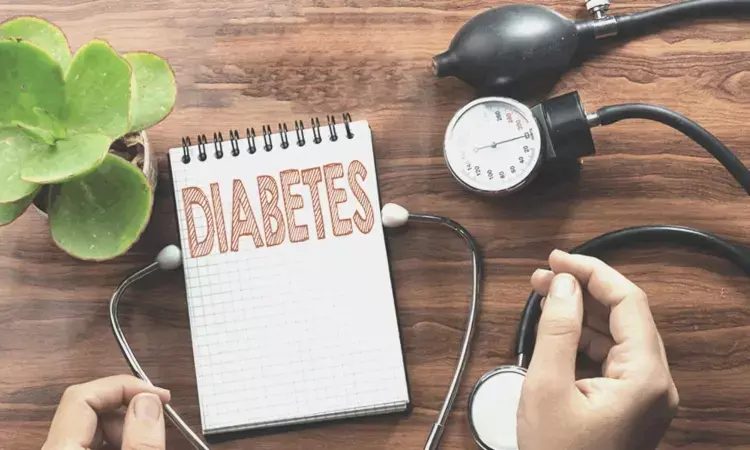- Home
- Medical news & Guidelines
- Anesthesiology
- Cardiology and CTVS
- Critical Care
- Dentistry
- Dermatology
- Diabetes and Endocrinology
- ENT
- Gastroenterology
- Medicine
- Nephrology
- Neurology
- Obstretics-Gynaecology
- Oncology
- Ophthalmology
- Orthopaedics
- Pediatrics-Neonatology
- Psychiatry
- Pulmonology
- Radiology
- Surgery
- Urology
- Laboratory Medicine
- Diet
- Nursing
- Paramedical
- Physiotherapy
- Health news
- Fact Check
- Bone Health Fact Check
- Brain Health Fact Check
- Cancer Related Fact Check
- Child Care Fact Check
- Dental and oral health fact check
- Diabetes and metabolic health fact check
- Diet and Nutrition Fact Check
- Eye and ENT Care Fact Check
- Fitness fact check
- Gut health fact check
- Heart health fact check
- Kidney health fact check
- Medical education fact check
- Men's health fact check
- Respiratory fact check
- Skin and hair care fact check
- Vaccine and Immunization fact check
- Women's health fact check
- AYUSH
- State News
- Andaman and Nicobar Islands
- Andhra Pradesh
- Arunachal Pradesh
- Assam
- Bihar
- Chandigarh
- Chattisgarh
- Dadra and Nagar Haveli
- Daman and Diu
- Delhi
- Goa
- Gujarat
- Haryana
- Himachal Pradesh
- Jammu & Kashmir
- Jharkhand
- Karnataka
- Kerala
- Ladakh
- Lakshadweep
- Madhya Pradesh
- Maharashtra
- Manipur
- Meghalaya
- Mizoram
- Nagaland
- Odisha
- Puducherry
- Punjab
- Rajasthan
- Sikkim
- Tamil Nadu
- Telangana
- Tripura
- Uttar Pradesh
- Uttrakhand
- West Bengal
- Medical Education
- Industry
Study links changes in insulin resistance with development of complications in type 1 diabetes

USA: A recent study published in the journal Diabetes Research and Clinical Practice has highlighted the importance of insulin resistance (IR) changes in the development of diabetes complications. This implies the need for intensive therapy in patients with type 1 diabetes (T1D) and IR.
Till now, no longitudinal study has evaluated the changes in IR status and development of complications in type 1 diabetes. Yuanjie Mao and Wenjun Zhong from the USA aimed to investigate the associations of IR status changes and diabetic complications in T1D by analyzing data sets from DCCT/EDIC study.
For this purpose, they calculated the estimated glucose disposal rate (eGDR) at the entry of DCCT and in EDIC year 12 (average 18.5 years later) to represent IR. 957 participants were divided into four groups based on IR changes from baseline: RR group (stayed resistant; n = 49), RS group (became sensitive; n = 42), SR group (became resistant; n = 197), and SS group (stayed sensitive; n = 669). Multivariable logistic regression models was used to analyze the association of diabetic complications.
The study revealed the following findings:
· The improved IR decreased the risk of peripheral neuropathy, whereas the deteriorated IR increased the risk of diabetic complications including hypertension, peripheral artery disease, coronary artery calcification, retinopathy, albuminuria, peripheral neuropathy, and cardiac autonomic neuropathy.
· RR group (HR = 3.59), RS group (HR = 2.27), and SR group (HR = 1.90) had a higher risk of cardiovascular events compared to SS group.
"These findings highlight the importance of IR changes represented by eGDR in the development of diabetic complications," wrote the authors. "This underscores the need for intensive therapy in patients with T1D and IR."
Reference:
The study titled, "Changes of insulin resistance status and development of complications in type 1 diabetes mellitus: Analysis of DCCT/EDIC study," was published in the journal Diabetes Research and Clinical Practice.
Dr Kamal Kant Kohli-MBBS, DTCD- a chest specialist with more than 30 years of practice and a flair for writing clinical articles, Dr Kamal Kant Kohli joined Medical Dialogues as a Chief Editor of Medical News. Besides writing articles, as an editor, he proofreads and verifies all the medical content published on Medical Dialogues including those coming from journals, studies,medical conferences,guidelines etc. Email: drkohli@medicaldialogues.in. Contact no. 011-43720751


